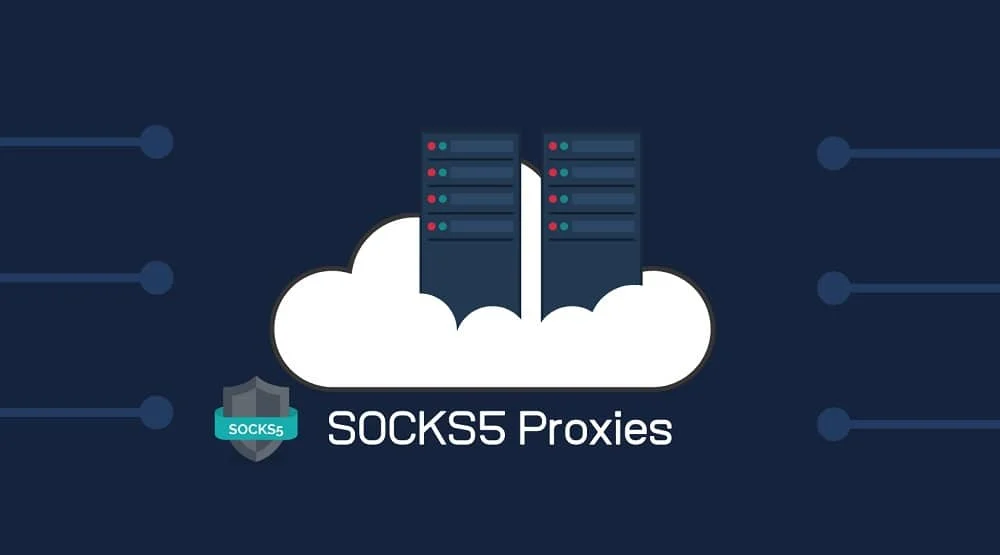I. Hide the real IP address
1. Privacy protection
Socks5 proxy server can hide the user's real IP address. In the Internet environment, our IP address is like a home address. If it is obtained by criminals, we may face risks such as privacy leakage and network attacks. For example, when we use a proxy server to access a website, the website records the IP address of the proxy server instead of our own real IP. This is like putting on a layer of "invisibility cloak" for us, effectively protecting our privacy.
2. Anonymous access
Socks5 proxy server is very useful for some scenarios that require anonymous access. For example, when conducting online investigations or accessing some sensitive information, using a proxy can prevent your real identity from being tracked. Take journalists investigating some potentially controversial events as an example. Through Socks5 proxy servers, they can obtain information without exposing their identities.

II. Break through network restrictions
1. Access geographically restricted content
Many websites or online services will be restricted based on the user's geographical location. For example, some foreign video streaming platforms, news websites, or academic resource libraries may only be open to users in specific countries or regions. Socks5 proxy servers allow users to bypass these geographic restrictions by connecting to proxy servers in other regions. For example, if a Chinese user wants to access the American Netflix platform to watch exclusive American dramas, by using a Socks5 proxy server and selecting a US proxy IP, it is possible to break through the restrictions and access and enjoy these contents normally.
2. Breaking through network blockades
In some network environments, some websites may be blocked. For example, in some corporate or school networks, in order to prevent employees or students from accessing certain entertainment or non-work and study-related websites, they will be blocked. Socks5 proxy servers can help users break through this blockade and access the websites they need. However, it should be noted that this behavior of breaking the blockade should be carried out within the scope of legality and compliance.
III. Optimizing network connections
1. Load balancing
Socks5 proxy servers can achieve load balancing functions. When users have more network requests or more network traffic, the proxy server can distribute the requests to different servers to avoid overloading a server. This is like a busy traffic intersection, with traffic police (proxy servers) directing vehicles (network requests) to allow them to pass through different roads (servers) in an orderly manner, thereby improving the overall performance of the network.
2. Improve network stability
When the network is unstable or the network quality is poor, the Socks5 proxy server can improve the stability of the network connection through its own cache mechanism and optimization algorithm. For example, when the network fluctuates briefly, the proxy server can respond with data in the cache to reduce the user's waiting time, or reselect a more stable network path to transmit data to ensure that the network connection will not be easily interrupted.
IV. Convenient multi-account management
1. Account anti-association
For users who need to manage multiple network accounts, the Socks5 proxy server can effectively prevent account association. On some platforms, such as e-commerce platforms or social media platforms, if multiple accounts use the same IP address for operation, it may be judged as abnormal behavior by the platform, and even the account may be banned. By assigning different proxy IP addresses to each account, the Socks5 proxy server can make these accounts look like they are operated by different users in different network environments, thereby reducing the risk of account association. For example, a cross-border e-commerce seller manages multiple store accounts. Using the Socks5 proxy server can ensure that each store account has an independent IP to avoid the account being associated and being punished by the platform.
2. Flexible account switching
It also facilitates users to switch flexibly between different accounts. Users can quickly switch to different accounts on one device by simply changing the proxy IP, without having to frequently change devices or network environments. This greatly improves work efficiency for users who need to operate multiple accounts at the same time for work or business.
V. Support multiple network protocols and applications
1. Protocol compatibility
Socks5 proxy server has good compatibility with multiple network protocols, including TCP (Transmission Control Protocol) and UDP (User Datagram Protocol). This means that it can support a variety of network applications, such as web browsing, file transfer, online games, instant messaging, etc. For example, when playing online games, Socks5 proxy server can ensure stable transmission of game data because it can handle data packets under the UDP protocol well, reducing game delays and freezes.
2. Application adaptability
Whether it is a browser-based application or a standalone client software, Socks5 proxy server can adapt well. For example, when using a browser to access a web page, users can easily configure the Socks5 proxy in the browser's proxy settings; for some professional software, such as financial trading software, design software, etc., you can also use the Socks5 proxy through the proxy setting options of the software itself, thereby achieving specific functions, such as breaking through regional restrictions on the software or improving the software's network access performance.
Related Recommendations
- 98IP tells you the key points of distributed crawler design
- Use residential agents to increase Telegram's anonymity
- Harnessing the agency power of journalism: Streamlining research and reporting processes
- After using the proxy IP, you may still be blocked. What should I do?
- How to use proxy IP to achieve cross-regional access on Twitter?
- IP proxy service for dynamic IP
- Cross-border users should know what an IP proxy pool is
- IP blacklist and IP whitelist: Definition and role
- The difference between dynamic IP and static IP and its applicability in Amazon operations
- HTTP Proxy: How did it enter the user's vision?

